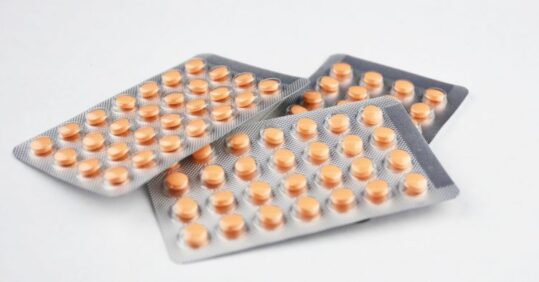Hormone Replacement Therapy (HRT) is often praised for alleviating menopause symptoms, balancing hormone levels, and improving overall quality of life. But what if, instead of feeling better, you start feeling anxious, irritable, or even depressed? You’re not alone—and it’s crucial to understand whether HRT is to blame. In this guide, we’ll explore how to recognize when HRT may be affecting your mood negatively, what to do about it, and answer the pressing question: can HRT cause depression?
Understanding HRT and Its Purpose
Hormone Replacement Therapy is primarily used to treat symptoms of menopause or hormone imbalances, such as:
-
Hot flashes
-
Night sweats
-
Vaginal dryness
-
Mood swings
-
Sleep disturbances
HRT typically involves the administration of estrogen, progesterone, or a combination of both. Some women even receive testosterone therapy. These hormones play a significant role in brain chemistry and mood regulation, which is why emotional changes can occur during HRT.
Can HRT Cause Depression?
Let’s get right to it: can HRT cause depression? The answer is—it depends.
While many women experience improved mood and well-being with HRT, others report emotional side effects. This is because every individual responds differently to hormone therapy. Estrogen and progesterone influence neurotransmitters like serotonin and dopamine, which regulate mood. Any imbalance—even from external hormones—can potentially trigger anxiety, irritability, or depressive symptoms.
Studies on HRT and Mood
Some clinical studies suggest that HRT may help reduce the risk of depression in menopausal women. However, other research shows that some forms of progesterone can worsen mood, especially in women sensitive to hormonal changes. Thus, while HRT can be a mood stabilizer for some, it can act as a mood disruptor for others.
Early Warning Signs: Is HRT Making Your Mood Worse?
It’s not always easy to tell if HRT is behind your mood changes. Here are signs to watch for:
1. Unexplained Sadness or Tearfulness
If you notice you’re feeling unusually emotional or prone to crying spells, it may be linked to hormone fluctuations caused by HRT.
2. Increased Anxiety
Do you feel more anxious than usual? Jittery feelings, racing thoughts, or panic attacks could indicate that your body isn’t tolerating the hormone dosage or type.
3. Irritability or Aggression
Sudden anger or irritability without a clear reason might be your body reacting poorly to a hormonal shift.
4. Sleep Disturbances
Poor sleep or insomnia can worsen mood and may be either a direct side effect of HRT or a consequence of emotional distress.
5. Loss of Interest or Motivation
Losing interest in activities you previously enjoyed, or feeling flat emotionally, could be a red flag for depression linked to HRT.
Why HRT May Affect Mood Differently for Everyone
Every woman’s hormonal baseline is unique. Some factors that may influence how HRT affects mood include:
-
Type of hormone used (synthetic vs. bioidentical)
-
Method of delivery (pill, patch, gel, injection)
-
Dose and duration of treatment
-
Pre-existing mental health conditions
-
Other medications being taken
It’s essential to consider these variables when asking, can HRT cause depression? You may need to work closely with a healthcare provider to find the right combination for your body.
What to Do If You Suspect HRT Is Causing Mood Issues
1. Track Your Symptoms
Keep a daily journal to log emotional changes, noting when they occur and any triggers. This helps identify patterns related to your HRT.
2. Speak to Your Doctor
Don’t stop HRT suddenly. Consult your doctor if you believe HRT is impacting your mood. They may adjust your dosage or switch your hormone type.
3. Consider a Hormone Panel
Your doctor may recommend hormone testing to determine whether imbalances are present. This can clarify if HRT is the culprit or if another issue is at play.
4. Explore Alternatives
Sometimes non-hormonal treatments for menopause symptoms, such as SSRIs or lifestyle changes, may be more appropriate if HRT is negatively affecting your mental health.
Alternative Treatments for Hormonal Mood Issues
If you’re sensitive to HRT, consider these alternatives:
-
Lifestyle changes: Regular exercise, a balanced diet, and good sleep hygiene can naturally regulate mood.
-
Cognitive Behavioral Therapy (CBT): Proven to help manage anxiety and depression during menopause.
-
Supplements: Some women benefit from vitamin D, magnesium, or omega-3 fatty acids, which support mood health.
-
Non-hormonal medications: SSRIs or SNRIs can reduce both menopausal symptoms and depressive symptoms.
Remember, not every woman needs to be on HRT to manage menopause effectively.
When to Seek Immediate Help
If you experience any of the following, seek professional help immediately:
-
Suicidal thoughts or feelings
-
Severe depression that interferes with daily life
-
Panic attacks or severe anxiety
-
Hallucinations or paranoia
Hormonal changes can be intense, but you don’t have to suffer in silence. Reach out to a mental health provider who understands the hormonal link to mood disorders.
Final Thoughts: Is HRT the Cause or Just a Coincidence?
So, can HRT cause depression? The answer is yes, it can—but not always. For many women, HRT is a life-changer, dramatically improving quality of life. For others, especially those with a history of mood disorders or sensitivity to hormonal changes, it can trigger emotional imbalances.
The key lies in personalized care. Monitoring your symptoms, communicating with your doctor, and being open to adjusting your treatment plan will help you get the most out of HRT without sacrificing your mental health.



